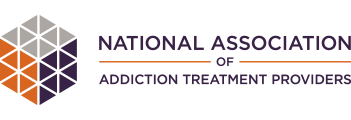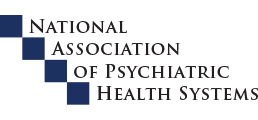Evaluating residential treatment programs can be a challenging experience. In addition to finding a reputable and effective program, you also have to determine if that program is best prepared to meet your specific needs.
To help you accomplish that goal, here are 10 essential questions that you should ask of any program you’re considering for yourself or for someone you love:
Is Your Program Licensed and Accredited?
Why this matters: Many addiction treatment programs claim to be the best. Licenses and accreditations provide objective evidence of quality, service, and effectiveness from third-party organizations that specialize in assessing these types of programs. Be extremely wary of unlicensed, non-accredited programs, as well as programs that can’t answer the next question to your satisfaction.
Are Your Therapists and Other Staff Members Accredited?
Why this matters: The staff at an addiction treatment program plays a critical role in delivering the treatment that shapes your recovery. Look for licensed and certified counselors and therapists, preferably with master’s degrees or higher, to ensure the best quality of care.
Does Your Program Have Full-time Medical Professionals?
Why this matters: You’d be surprised how many programs do not employ doctors or nurses as part of their full-time staff. Some programs have part-time medical personnel, while others consult or contract with area professionals on a case-by-case basis. Having full-time doctors and nurses on staff significantly enhances the quality of care that a program can provide.
What is Your Treatment Philosophy?
Why this matters: A program’s treatment philosophy is an essential statement that guides the development and implementation of both policies and practices. Reading a program’s philosophy statement will provide you with essential insights into how the program defines its mission and views its relationship with its clients.
What Types of Treatment Do You Offer?
Why this matters: Residential treatment should never be a “one size fits all” experience. The most effective programs provide a wide range of services, and can customize treatment to meet the unique needs of each client When you evaluate a program, pay close attention to its ability to develop a personalized plan that features the level and type of treatment that you need. Additional Integrative Therapy packages are available for purchase.
Does Your Program Facilitate Family Involvement?
Why this matters: It’s hard to overstate the importance of family involvement in residential care. Your family has been impacted (and, in some cases, may have contributed to) the issues you are facing – and it’s important for both you and your loved ones that they are part of your treatment plan. The program you choose should be able to help your family members deal with immediate issues while you’re in treatment as well as prepare them to provide the positive support that will be essential to your long-term success.
Does Your Program Provide Treatment for Co-occurring Disorders?
Why this matters: Disease such as addiction, chronic pain, and mood disorders rarely occur alone. For example, an addiction may be caused by depression, or disordered eating may arise from untreated trauma. Co-occurring treatment addresses all of the issues with which you are dealing, thereby increasing your ability to achieve long-term success in recovery.
What Activities & Amenities Does Your Program Offer?
Why this matters: Treatment can be hard work – but it shouldn’t be all work. An effective residential program will provide a variety of activities and amenities to complement your treatment and support your progress. Massage, yoga, meditation, art, equine therapy, and sports are just some of the myriad options that can ease your stress, enhance your recovery, and provide you with engaging sober activities to fill your days. Additional Integrative Therapy packages are available for purchase.
Does Your Program Provide Support After You Leave Treatment?
Why this matters: There’s no way to sugarcoat this: Residential programs that don’t provide continuing care support are not giving their clients the best chance to achieve long-term success. From the first day you enter treatment, your team should be planning for what happens when you return home – and the day you leave treatment, you should do so with resources in place to support your treatment. For example, the Sierra Tucson Connections program provides 12 months of personalized support and advocacy to clients who complete treatment at Sierra Tucson.
Can I Speak With Your Program's Alumni?
Why this matters: Alumni who have been where you are now, and who have completed the program that you’re considering, are the perfect people to speak to you about life before, during, and after treatment. They will be able to give you unique insights into day-to-day life at the program and can provide first-hand accounts of how their lives have been impacted by the program in question.













